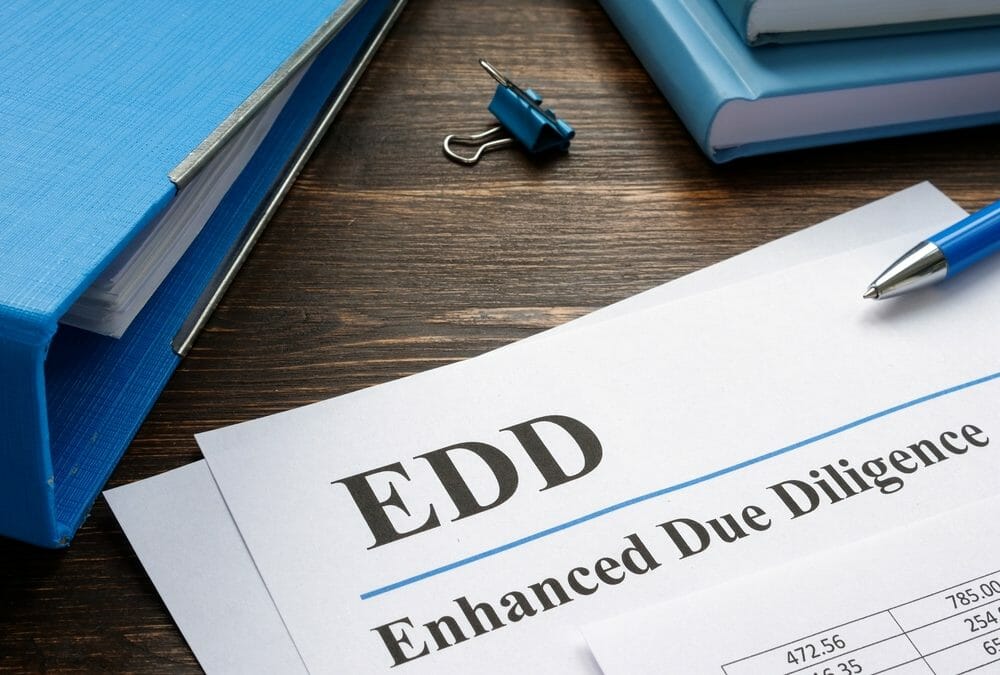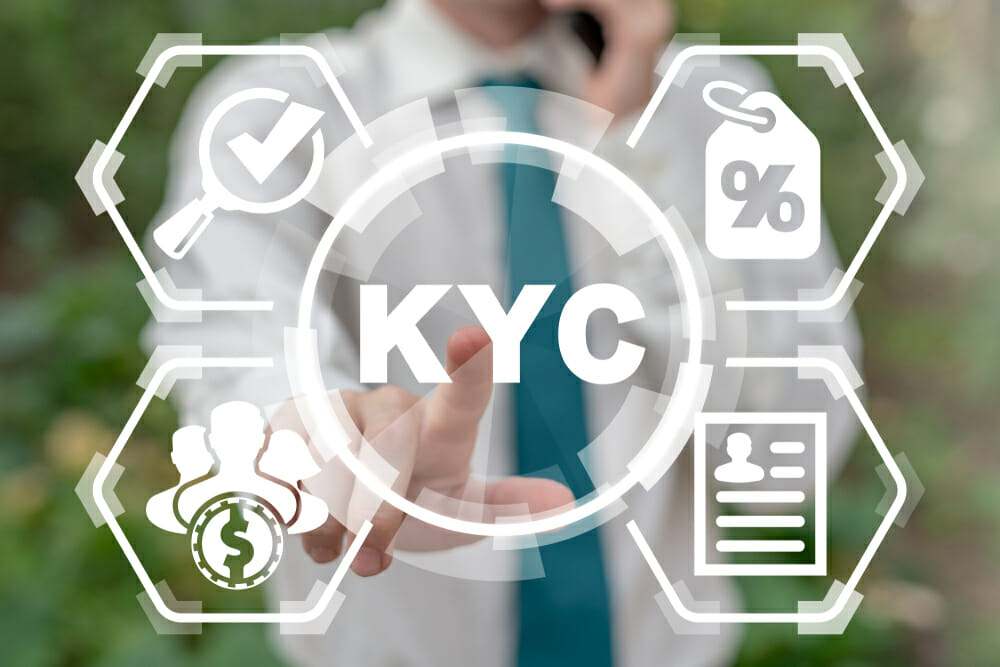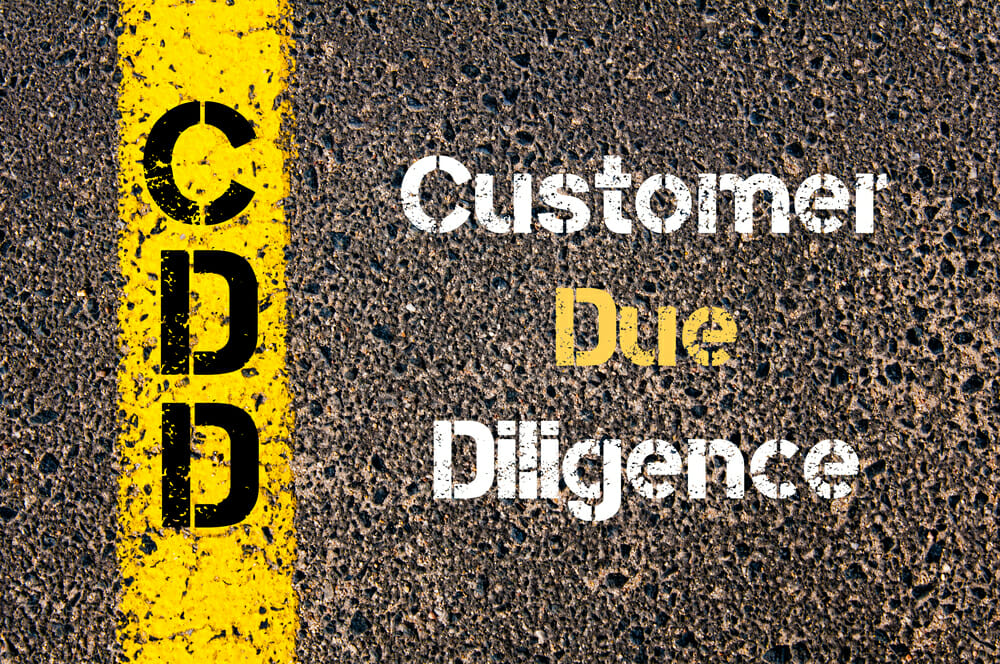In an era where digital fraud is increasingly sophisticated, liveness detection technology has emerged as a critical tool for enhancing security. This technology ensures that the biometric data provided during identity...

What Triggers an AML Investigation?
What Triggers an AML Investigation?
Money laundering and financial fraud are two of the biggest risks facing businesses and institutions worldwide, with an estimated USD $800 million to $2 billion laundered annually. To combat this, global legislators such as FinCEN, FINTRAC, and various European governing bodies create and enforce strict anti-money laundering (AML) protocols as well as Know Your Customer (KYC), Customer Due Diligence (CDD), and Enhanced Due Diligence (EDD) processes where necessary.
With the global pandemic having accelerated the already steady shift to more and more transactions being conducted online, the importance of willful compliance and protection continues to grow for organizations worldwide.
At iComply, we know that staying on top of best practices and evolving mandates can be tricky; partnering with a robust AML software provider like iComply is one of the best ways to protect your organization and avoid costly fines. Below, we’ll highlight several key factors that can trigger an AML investigation, and explore how a vetted software platform can keep you safe when it matters most.
What Are AML Investigations?
As the term indicates, AML investigations are investigations pertaining to suspicious financial activities that may be tied to fraud and/or money laundering. Though not every suspicious activity may warrant a full-scale investigation or be indicative of fraud, businesses and institutions must be prepared to uncover, report, and act on further details to stay compliant with jurisdictional legislation.
To that end, every company’s AML protocols should have a clear list of activities and data that warrant further investigation, and an active investigation must move forward should that threshold be met. Common trigger factors include:
- Sudden, uncharacteristic financial behaviours (i.e. excessive transfers)
- A client becoming subject to a government investigation
- Negative SEC reports
- Whistleblower activities or lawsuits coming to light
- Transaction monitoring alerts
- Internal audits
What Happens Next?
Once an alert is raised, your compliance team should step in swiftly to follow up and conduct a more thorough assessment of the right course of action. Not every identified “threat” will warrant a full investigation (which is typically quite costly and time-consuming), but taking a closer look will give your team a better idea of what steps are necessary as you move forward.
Core factors to look at include:
Revisiting Risk Profiles
AML protocols should always have an integrated KYC component—meaning that, should a risk arise, you can revisit your existing customer profile. Take a moment to (re)assess your customer profiles and look for incongruities. Has there been a sudden shift in risk level for the country they operate out of? Any recent shifts in active board members? Is this individual or entity a relatively new addition to your customer base, or a longstanding account with no previous issues? Each factor has a role in determining overall risk and dictating what needs to be done.
What is the Customer’s Baseline?
Every profile will have a different baseline to help determine what is considered ‘normal’ for their operations. Rising interest rates and other economic factors have put a strain on plenty of otherwise normal clients which can lead to brief periods of irregularity in their business operations that, while odd, are explainable given the circumstances. If you recognize significant discrepancies in recent behaviour or prolonged activity changes, this is often a sure sign that something is amiss and safety protocols need to be enacted.
What Happens if There is a Viable Threat?
If your review process makes it clear that your organization needs to escalate the risk factor, filing a Suspicious Activity Report (SAR) may be in order. Once identified, you have 30 days to do so and an additional 90 days to file the final report after an initial investigation has been opened. Failure to comply with this mandate can result in hefty fines for businesses, as well as significant headaches for your operational teams to overcome in the future if not corrected.
To avoid the risk of fines and other non-compliance issues, implement a clearly defined investigation process that incorporates reliable KYC and AML software you can trust, and ensure your compliance and operations teams are adequately trained to be as proactive as possible.
AML Protection With iComplyKYC
At iComply, we know that AML protections are essential to the operation and safety of your business. Our modular suite of KYC, KYB, and AML products not only ensures you have everything you need to manage and maintain a wide range of jurisdictional AML regulations but also streamlines and automates your customer identification and risk screening processes more intuitively than ever before.
Book a demo with our team today to learn more about iComply’s AML solutions and discover how iComplyKYC can be customized to fit the unique risk screening needs of your organization.
learn more
Is your AML compliance too expensive, time-consuming, or ineffective?
iComply enables financial services providers to reduce costs, risk, and complexity and improve staff capacity, effectiveness, and customer experience.
Request a demo today.
Enhancing Security with Liveness Detection Technology
Digital Onboarding: Streamlining Customer Onboarding Processes
Digital onboarding has revolutionized the way financial institutions and businesses welcome new customers. By leveraging technology, organizations can streamline the onboarding process, enhance user experience, and ensure...
Virtual Verification for Law Firms: From Chaos to Clarity
Financial regulators such as FinCEN and FINTRAC, have been increasing the requirements for law firms to screen, monitor, and report on their clients for money laundering, human trafficking, and the financing of terrorism.
















